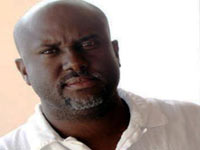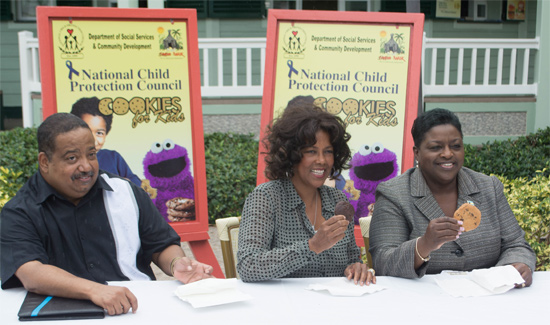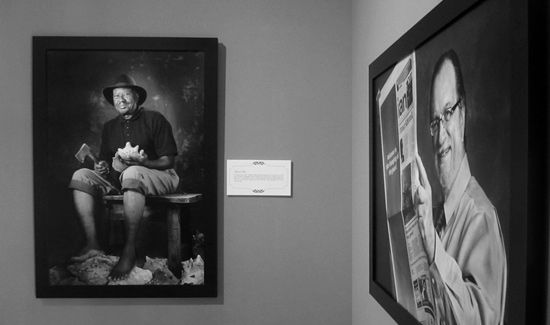
I’ve been called a “pack rat;” a hoarder. I don’t think it’s true. You’re not going to have to take a chain saw to my front door to reach me because I’m stuck in a mountain of paper, boxes, old clothes and memorabilia. Clutter actually depresses me. I’m messy, but I have a threshold. What interests me are memories, and objects help me to remember, help me to hold on to the precious moments in my life; moments that are gone way too fast; moments I don’t ever want to forget.
So, the other day I revealed some of my hoarded treasure to my wife. Newspapers. More specifically, I am preserving in plastic, newspapers printed on the day my sons Joshua and David were born. One day I will present them with the papers and I’m not sure how they will react, but I inwardly hope that they will be intrigued by what was going on in the country and the world when they arrived, and I hope they will be inspired to preserve memories of things and people as important to them as they are to me. On another level, I’ve saved the papers for myself too. For me to look back at and to remember two days that changed my life forever.
I save my favorite little items of clothing that they wore too. When they’ve outgrown them, rather than throw them away or give them away, I hold on to them. I believe that as long as I keep the object, I will be able to keep them in my heart as little children. I’ve made it a point to video tape them at this stage of their lives too.
I guess I want to be meticulous about preserving memories because so much of my past is inaccessible to me. My parents separated when I was three. I have no memories of us as a whole family. I met my grandparents when they were all very old and infirm. I want to know about the world they came from but it’s hard to find answers. I have also lost two brothers and my mother died before I was married and had children. All these things make me very particular about memories, about holding on to things before stuff changes. Stuff changes so quickly and you’re rarely prepared.
People like to say now-a-days that we need to live in the moment. That’s not my strong point. When I am not gazing far down the road I am remembering something from some time past. The past is always present. The past anchors, it gives you a starting place, similar to when you run a relay. You pick up where your predecessors left off. If one’s predecessor was ahead, you may not have to push so hard; if they were behind, you push extra hard so that you make it better for the next person in the race. Remembering where you’ve been is like that. What was done for those before us was also done for us: emancipation, the right to vote, independence.
Forgetting one’s past is like losing the title to your house. You can occupy it, but you don’t really own it. When I hear young Bahamians mixing up Malcom X and Martin Luther King, or only knowing that Carlton Francis is a school, it’s as if they were given the keys to a house they did not build and do not care for. The past does not matter.
I live in the house that my mother built. Our history is embedded in everything here. I can walk down a hall and remember my two late brothers Kenneth and Winston. I remember the things that made us strong, and the things that broke us down. The pride she took in owning this land and how she let us, her children expand it, as though it were ours because in her eyes it was ours.
The loss of Pompey Museum is tragic, but hardly anyone seems to know it, and that is even more tragic than the fire itself. But it makes sense because as a country, one of our strengths is our ability to forget. I know; that wasn’t quite what you expected me to say. I mean it, though. It’s a strength of ours. A weakness too.
We have willfully forgotten so many things. We forget what leaders say, what they do. We’ve forgotten ways of life. Hardships. Struggles. The Bahamas changes so quickly that maybe this is something we’ve mentally had to do to keep going. Modernization, urbanization, immigration, globalization: you name it. In one lifetime we’ve gone from no electricity, no sewerage, no running water, no telephones, no tvs, no computers, no cars, no banks, no food stores and no vote to … all this. We’ve learned to drop what we don’t need any more. Quickly.
But the flip side is we don’t know who the hell we are. Or if we know, we’re not sure it’s OK. That’s why we don’t think history should be a mandatory subject in high school.
I think there is a very serious problem with a country that only knows how to honor politicians. What about Joseph Spence? Tony McKay? Blind Blake? Sidney Poitier? Calvin Lockart? Winston Saunders? Clement Bethel? James Catalyn? Eddie Minnis? Telcine Turner Rolle? Jeanne Thompson? Patti Glinton-Meicholas? Patrick Rahming? Jackson Burnside? Drexel Gomez? Keva Bethel? Brent Malone? The contributions of these men and women helped make us who we are.
But I suppose if you’re not sure who you are, or worse yet, you see no value in who you are, this neglect and forgetfulness makes sense. Burn the whole damn town then. Let’s start over.
IAN STRACHAN is Associate Professor of English at The College of The Bahamas.



